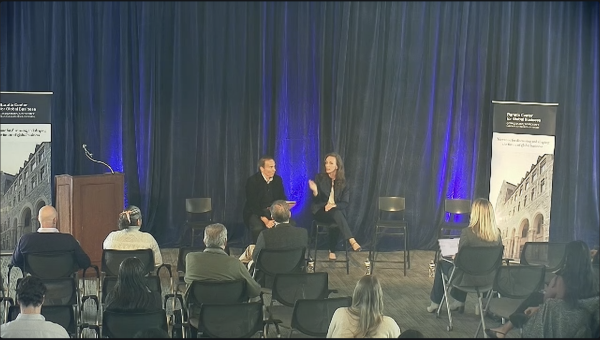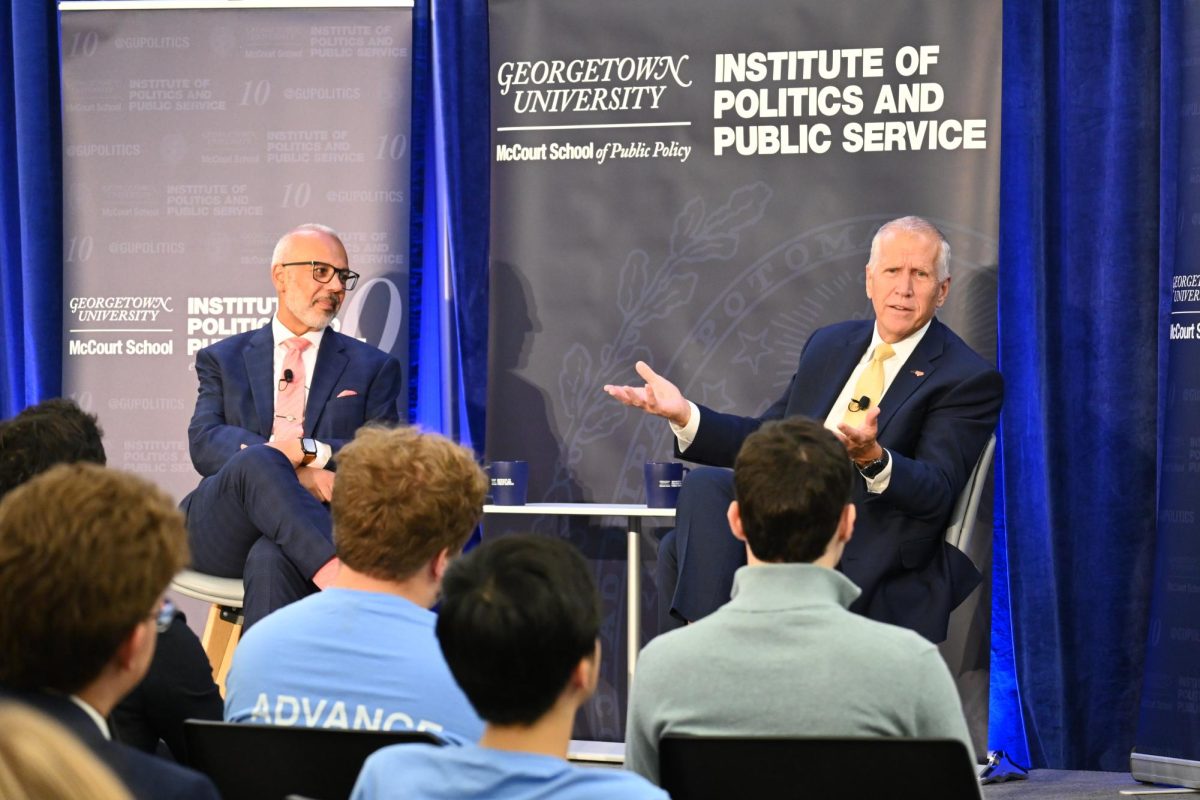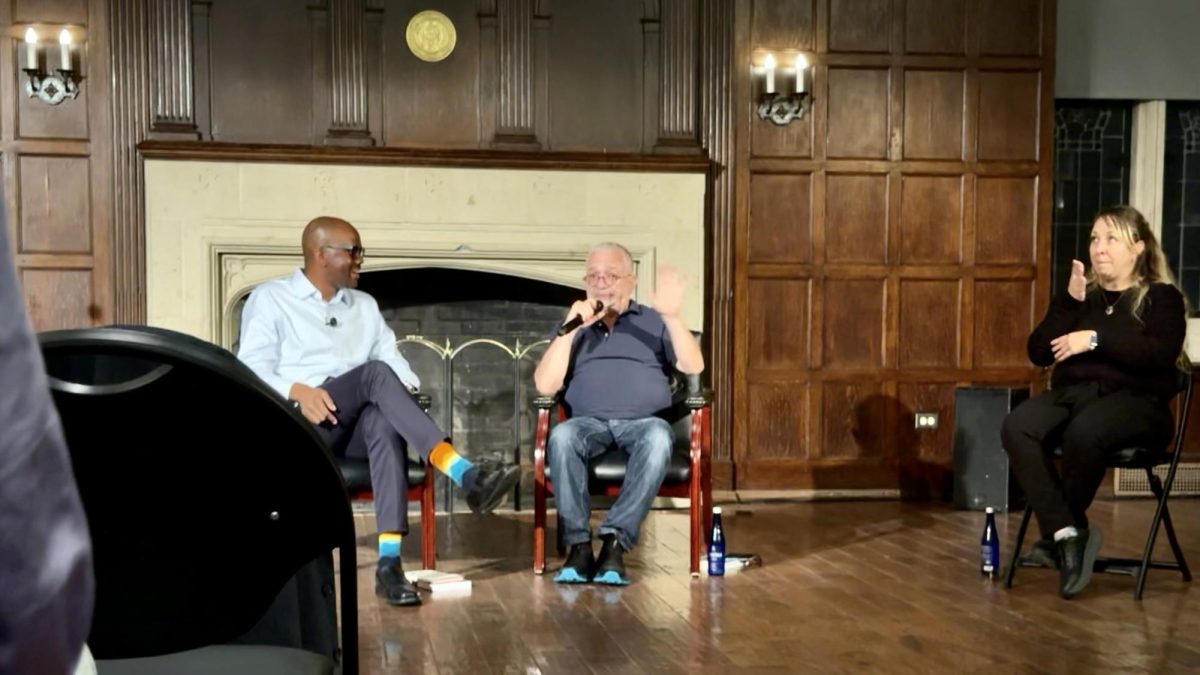A former United Parcel Service (UPS) official urged equal consideration for both corporate social responsibility and profit in a keynote address at Georgetown University’s Baratta Center for Global Business impact roundtable Dec. 3.
Laura Lane (GRD ’90), former UPS executive vice president and chief corporate affairs and sustainability officer, served as a U.S. foreign service officer and a U.S. Trade Representative trade negotiator before moving to the private sector and working at Citigroup and Time Warner. The roundtable, titled “Driving Global Business for the Common Good,” focused on how fostering shared values between executives and employees can achieve both economic and social progress.
Lane, who led evacuation efforts during the Rwandan Civil War during her time as a diplomat, said her experience in the foreign service motivated her to seek alternative avenues for change.
“When you experience something as traumatic as being a firsthand witness to genocide, it kind of changes your whole thought processes,” Lane said at the event. “It helped me realize what really matters in life: It’s the people that you work with, the passion you bring to the role and the principles that you bring to everything that you do. Going to the U.S. Trade Representative Office was an incredible opportunity to find a way from genocide to fostering economic ties and cooperation.”

(Pooja Narayan)
Lane said she initially resisted joining the corporate workforce, but the interpersonal skills she learned in Rwanda helped her improve workplace culture in the private sector.
“I had approached every relationship from that human relationship, not trying to bring in American policy or influence but establishing that connection as human beings,” Lane said. “Then one of my first responsibilities in taking over the job of chief corporate affairs officer was to figure out how to tap into what motivates our drivers day in and day out to keep delivering those packages.”
Ricardo Ernst, Baratta chair in global business and professor at the McDonough School of Business, moderated the address and delivered the opening remarks to the roundtable. Ernst said Lane’s career exemplifies how businesses can use what they learn about the needs of their employees and customers to function ethically.
“At the end of the day, most people will act on what’s good for them,” Ernst said at the event. “But if you can act on what’s good for them and then include that in your business proposition, then that is sustainable. That’s why this roundtable is so important, because we will be able to validate what we’re talking about.”
Lane added that strong relationships within corporations and between corporations and customers can ensure that the needs of shareholders and the public are met.
“UPS negotiated last year one of the most historic agreements with our union, the Teamsters, and everybody wanted it to be a confrontation,” Lane said. “But when you adopt the ‘we’ approach, we are nothing without our drivers. But on the other side, it had to be an agreement that allowed us to have the strong workforce that we need to be able to deliver exceptional service to our customers. We had to find that accountability to each other and negotiate a win-win-win agreement.”
Lane said this shared responsibility, along with data-driven policy, can also support sustainability efforts without sacrificing profit.
“We had metrics behind all the carbon we emitted,” Lane said. “We said, ‘Let’s figure out a way that we can drive those carbon emissions down while still serving our customers well, not pricing ourselves out of the market and working with governments to find a way to incentivize doing good while also, in the case of UPS, delivering goods.’”
Lane said she felt guilty about being unable to save everyone during the evacuation in Rwanda, but said UPS provided a path to help through corporate responsibility.
“I felt incredible regret that I hadn’t done more to save more people,” Lane said. “Fast forward to 2016 and UPS was advancing an incredible innovation — drone deliveries for delivery of life-saving blood — and we were going to launch it in Rwanda. In remote areas, we changed maternal mortality by 85%.”
Lane said the ultimate compromise between profit and social responsibility is one that considers all perspectives.
“I wish the world were what I thought it was when I first joined the foreign service,” Lane said. “But you know, 36 years later, I realized that there’s a lot of competing interests and what you have to do is try to motivate and create the allies behind shared values who believe in achieving a greater good.”







